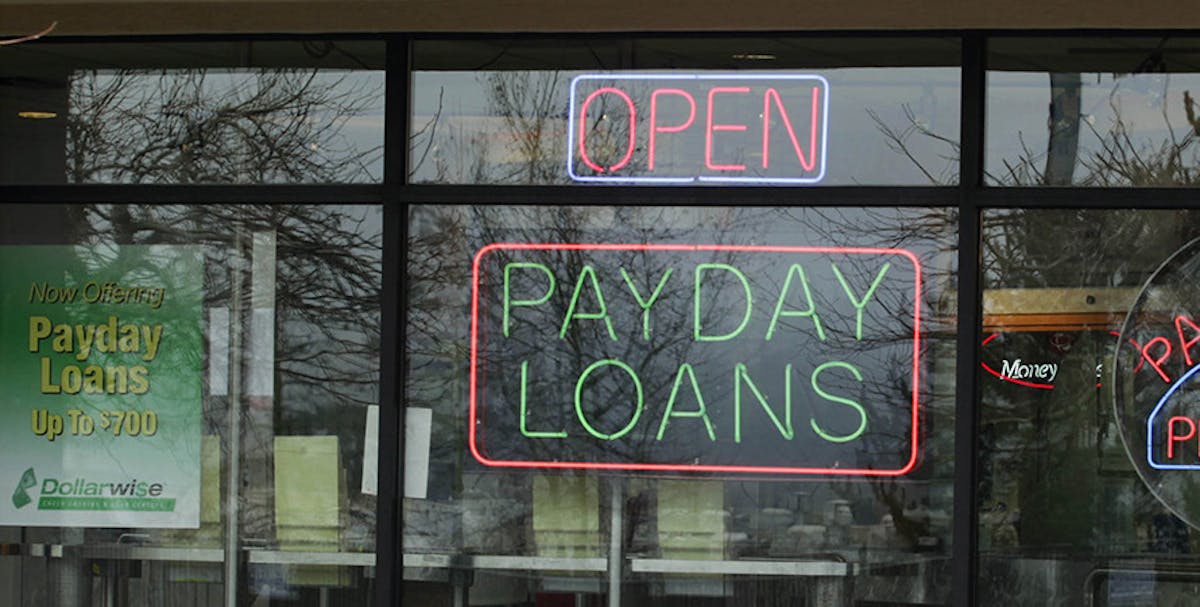Tyren McGruder, a working-class single dad, has emerged from the debt trap of payday loans thanks to Holy Trinity Lutheran Church.
Church members decided to do something in 2012 when a couple of payday lenders moved into their East Lake Street neighborhood.
"Holy Trinity always has been very social-justice and community-oriented," said Phil Jury, businessman and church member who started to study the payday situation with other congregants. "We felt if we could develop a working alternative to these lenders, then we could more easily press the case for [state] legislative reform of this industry."
Payday lenders such as Ace Cash Express, Cash Central and Payday America charge fees and finance charges that can cost a small borrower of less than $1,000 effective annual interest of 200 percent or more, particularly when desperate or ignorant borrowers refinance old loans, incurring more and larger fees from the same or additional lenders. And they have fought off reforms proposed by the Minnesota Department of Commerce to the Minnesota Legislature that would limit rates and the number of loans per customer in a year.
McGruder, a $40,000-a-year office worker who admits he was a poor money manager, got in trouble when he paid for a relative's funeral in 2012 and ran up several thousand dollars in credit card debt. He fell behind on rent and other expenses, and borrowed from one payday lender and refinanced with others, eventually paying $530 every two weeks in fees for what amounted to $2,000 in outstanding credit.
"I was in over my head," McGruder said.
McGruder sought financial counseling from Lutheran Social Service. A counselor referred him this year to Exodus Lending, the small payday-loan refinance business started by Holy Trinity, which has made nearly 20 such loans so far this year.
To get a payday loan, a borrower has to have a job, or at least steady income, and a bank account. The lender takes fees through electronic access to the borrower's account.
"Most lenders want their money paid back," said Adam Rao, a minister who is leaving his job as executive director of Exodus Lending to earn a master's degree in business from the University of Minnesota. "These payday lenders really make it difficult to pay off the loans. They go to great lengths to keep collecting their charges and fees.
"We're seeing an average payday loan amount of $441.37 carrying a $97.39 fee or finance charge every two weeks. That's an equivalent [annual] interest rate of 573 percent. This is wealth being extracted from our neighborhood."
Exodus Lending is a small test so far. Advocates say it proves that, when combined with basic personal finance and budgeting education, there are better, more economical alternatives to the payday debt spiral.
Exodus, which hopes to refinance loans to 40 clients such as McGruder this year and 100 in 2016, has a revolving loan pool so far of more than $30,000. Funders include Holy Trinity, Colonial Church of Edina, the Headwaters Foundation for Justice and individual donors. There have been no defaults so far on the short-term, low-interest borrowings that must be repaid within a year.
Exodus also requires that the client borrowers get financial counseling through Lutheran Social Service, including starting a savings account at Sunrise Bank that Exodus matches with $25 for every $100 put away, up to $400.
The payday lenders, led by Payday America, the 15-store, Burnsville-based company that also owns Pawn America, have fought legislative changes that would limit the number of loans to one borrower and cap interest rates at 30 percent. They say that restricting their business too much in Minnesota would kill the industry and leave small borrowers to unregulated Internet operators and loan sharks. Critics say payday lenders depend on loan churning, multiple loans and huge fees for exorbitant profits.
Jury said Exodus is talking to financial institutions and other nonprofits, about development of the best model and expansion of economical alternatives to payday lending.
Meanwhile, Sunrise Banks, after two years of testing with partner employers and discussions with bank regulators, this year launched TrueConnect through a growing list of 26 participating employers who offer it as an employee benefit. It is emergency loans for the hard-pressed, including employees with bad credit, who can be approved for a loan of up to $3,000. The amount is capped at 8 percent of wages. Rates range up to 25 percent, a credit-card rate, and loans must be repaid over 12 months.
McGruder said his life is better for Lutheran Social Service and Exodus.
"I'm saving hundreds a month in fees and interest expense and better providing for my daughter," he said. "I also have learned to live within my means."
Neal St. Anthony • 612-673-7144 • neal.st.anthony@startribune.com
Baltimore port to open deeper channel, enabling some cargo ships to pass after bridge collapse
Phish fans are famously dedicated. What happens when they enter the Sphere?
The head of Mexico's detective service says his country is the 'champion' of fentanyl production

